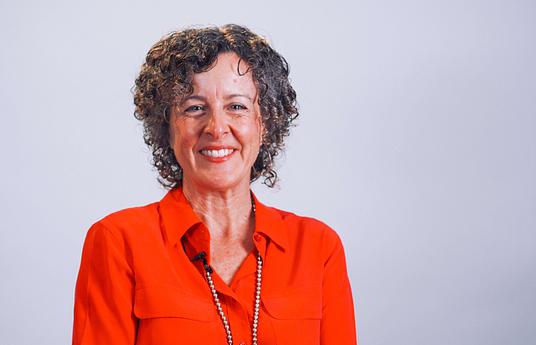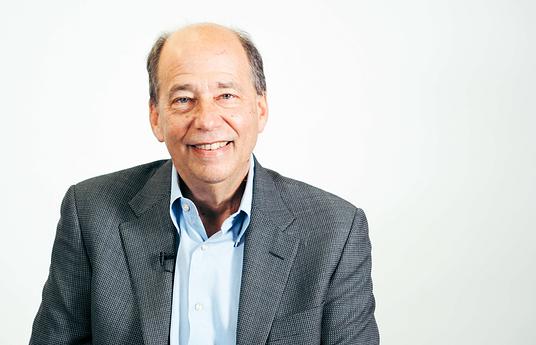Zobaida Akhter
Dr Zobaida Akhter works at the Ministry of Education Bangladesh as a consultant of gender and inclusive education in secondary education level. Her fields of expertise include teaching (Higher Education level), open and distance learning, women and gender studies, and philosophy
Skills
What should children learn in school?
We cannot deny that in formal education there is a curriculum and there is a text book. Our curriculum is very good, but still the textbook is too much of a burden. I think it should be more practical, project oriented and programme orientated. There should be partnerships with institutions so that students can learn practically from them through skype etc.
Education should be practical and based on one’s own ability.
Why is education important?
To change lives. Education should not only be theoretical, family education is very important too. But we need to change perspective - Mary Wollstonecraft's says in A Vindication of the Rights of Women that it is because of mistaken family education that women are lagging behind.
In our country nowadays it is decreasing in tendency, but it used to be common that the family would take care of the boy, the son, because he is the asset, not the girl. So their discrimination starts from there with stereotyping. Girls play with dolls and boys play with footballs. When boys slap their sisters parents would say: ‘this is normal, boys can slap anyone.' Afterwards this becomes violence to their wife, to society.
So that was stereotyping, but everything is changing. In both rural and urban areas things are changing, but women are still lagging behind. There are still some hidden problems. Apparently we are empowered- our prime minister is female, our opposition is female, our speaker is female. Many members of parliament are female, but in general women are lagging behind.
Education is a light for how to design your life. It is a light and it is a way.
Teachers
What is the role of the teacher?
In our country the teacher is the teacher. The teacher is the boss, the teacher is always right. But to me the teacher should be a friend and a facilitator.
Often if there are students in class who come from poor backgrounds or who have disabilities the teacher ignores them. The teacher focuses on the faces that are beautiful, that come from a good families. Instead the teacher should be a friend and should know why this student is upset today. He/she should ask about each learner’s social environment and main causes for why they are not concentrating too much on learning.
The teacher should be kind, the teacher should be a guardian, a mentor, and best friend.
Environments
What would be the most exciting learning environment?
The classroom should not be like a jail or a prison. Classrooms should be a place where, just like a dining table, there is familiarisation and opportunities to chat with others and to learn with others. It should be a very friendly environment.
All learners should be respected by the teacher and teachers should be respected by the learners. There should be no difference caused by social stratification - we are all equal, and we are all human beings.
Leadership
Please explain Bangladesh's education system.
Education in Bangladesh is in a very good position. Primary education is almost free and in secondary education there are stipend programmes and scholarships.
The government encourages women and all children to be educated. However the ratio is not satisfactory because the drop out rate of women is very high. This is because of early marriage, lack of security, lack of motivation and prejudices etc.
Our teachers are very good - they are getting ICT training and continuous professional development training. Our education policy is one of the best in the world, but implementation will take time because it is very broad in perspective and not focused enough.
Bangladesh’s education does have some issues, such as inclusion. The vision is good - we know we need better inclusion. So what will the strategy be? How can we include all disabilities, ethnic communities and children from poor backgrounds when there is no specific focus on how to include them?
What could Bangladesh learn from the rest of the world?
Bangladesh could learn about education practices that are project and programme based and that are based on ability.
Often we enforce our students or our children to go into medical science or architecture, but I know that my daughter is not interested in those areas, she is interested in filmmaking. Often we push them into other directions and this should not be happening. In other countries all types of areas are very well accepted, but in our country we still focus on architects, engineers and doctors. So we should go beyond that.
We should learn from abroad that books are not the only sources of learning. We can learn from life, learn from practical situations and from many other directions. We should encourage students to think: ‘I'll decide my life.’
I believe in pragmatism and that truth is workability. I love that philosophy - truth is workability.
What could the rest of the world learn from Bangladesh?
Our love for our country - within nine months we liberated our country. With small resources we are trying hard to make a Golden Bangladesh.
We are very true within ourselves, we are honest, we are sincere and we are very kind. Education is a priority despite the fact that we have very limited resources.
The world can learn from Bangladesh sincerity, honesty and simplicity.
Personal memory
What was your favourite moment in your own education?
At school I was very restless. I could not stay for forty-five minutes in a class, so after thirty minutes my teachers allowed me to go out for five minutes. They knew that I was a very good student so they knew I could catch up with the lesson. They would say: 'you are getting bored, no? Please go out for five minutes.'
The next 100 years
The next 100 years of Finnish education should... be a global village.
Education should not be centered around classrooms, it should be centered around partnerships with local and global communities.
Education is profound like the ocean and sweet like honey, so it should not be limited to a very small room with one teacher. All will be teachers, all will be learners.



